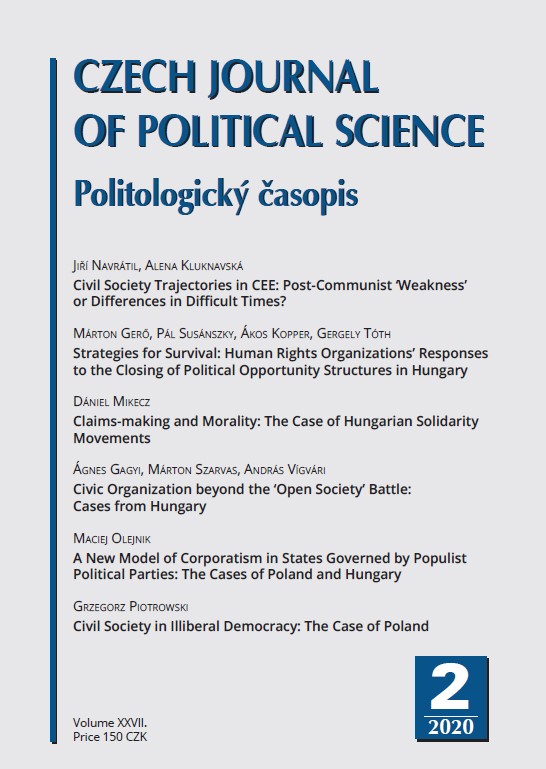Civil Society Trajectories in CEE: Post-Communist ‘Weakness’ or Differences in Difficult Times?
Civil Society Trajectories in CEE: Post-Communist ‘Weakness’ or Differences in Difficult Times?
Author(s): Alena Kluknavská, Jiří NavrátilSubject(s): Politics / Political Sciences, Social Sciences
Published by: Masarykova univerzita nakladatelství
Keywords: civil society; Central and Eastern Europe; post-communism; anti-establishment; refugee crisis; pandemic
Summary/Abstract: The article links previous debates on the qualities of civil society in CEE countries and its contemporary challenges with the aim to demonstrate the debate’s inner differentiation but also its persevering incapacity to identify and articulate current political risks. The article critically reflects on discussions over the presumed weakness of civil society and connects them to the major contemporary challenges for post-socialist civil society in the last decade – profound political transformations driven by authoritarian elites, the 2015 European refugee crisis, and the current coronavirus pandemic. Examining the trajectories and characteristics of CEE civil societies in relation to these developments, we claim that instead of a single, homogenous CEE civil society shaped by a shared communist past, civil societies in the region are largely determined by different national political contexts. One of the few common characteristics which makes them different from their old democratic counterparts is their depoliticization, mostly in terms of their selective approach to political issues and risks.
Journal: Politologický časopis - Czech Journal of Political Science
- Issue Year: XXVII/2020
- Issue No: 2
- Page Range: 101-118
- Page Count: 17
- Language: English

